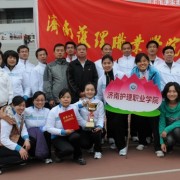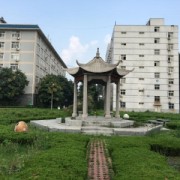英语四六级考试听力调整,据说难度将加大
来源:好上学 ??时间:2023-08-16
英语四六级考试听力调整,据说难度将加大
这是一个不好的消息,来自全国大学英语四、六级考试委员会消息,2016年6月份英语四六级考试,将取消短对话和短文听写,取而代之的是新闻听力和学术讲座。难度大幅度增加!进一步向托福雅思等国际权威考试接近。
以下是通知全文:
关于全国大学英语四、六级考试听力试题调整的说明
为了适应新的形势下社会对大学生英语听力能力需求的变化,进一步提高听力测试的效度,全国大学英语四、六级考试委员会自2016年6月考试起将对四、六级考试的听力试题作局部调整。调整的相关内容说明如下。
一、四级听力试题的调整
- 取消短对话
- 取消短文听写
- 新增短篇新闻(3段)
其余测试内容不变。调整后四级听力部分的试题结构见下表:
测试内容 | 测试题型 | 题量 | 分值比例 |
短篇新闻3段 | 选择题(单选) | 7题 | 7%(每题1分) |
长对话2篇 | 选择题(单选) | 8题 | 8%(每题1分) |
听力篇章3篇 | 选择题(单选) | 10题 | 20%(每题2分) |
二、六级听力试题的调整
- 取消短对话
- 取消短文听写
- 听力篇章调整为2篇(原3篇)
- 新增讲座/讲话(3篇)
其他测试内容不变。调整后六级听力部分的试题结构见下表:
测试内容 | 测试题型 | 题量 | 分值比例 |
长对话2篇 | 选择题(单选) | 8题 | 8%(每题1分) |
听力篇章2篇 | 选择题(单选) | 7题 | 7%(每题1分) |
讲座/讲话3篇 | 选择题(单选) | 10题 | 20%(每题2分) |
三、以下是调整后的样题:
大学英语四级考试听力样题
Part II Listening Comprehension (25 minutes)
Section A
Directions:In this section, you will hear three news reports. At the end of each news report, you will hear two or three questions. Both the news report and the questions will be spoken only once. After you hear a question, you must choose the best answer from the four choices marked A), B), C) and D). Then mark the corresponding letter onAnswer Sheet 1with a single line through the centre.
Questions 1 and 2 will be based on the following news item.
1. A) Christmas-time attacks made by Somali rebels.
B) An explosion at a bus station in central Nairobi.
C) The killing of more than 70 Ugandans in Kampala.
D) Blasts set off by a Somali group in Uganda’s capital.
2. A) On Christmas Eve. C) During a security check.
B) Just before midnight. D) In the small hours of the morning.
Questions 3 and 4 will be based on the following news item.
3. A) It is likely to close many of its stores.
B) It is known for the quality of its goods.
C) It remains competitive in the recession.
D) It will expand its online retail business.
4. A) Expand its business beyond groceries.
B) Fire 25,000 of its current employees.
C) Cut its DVD publishing business.
D) Sell the business for one pound.
Questions 5 to 7 will be based on the following news item.
5. A) All taxis began to use meters.
B) All taxis got air conditioning.
C) Advertisements were allowed on taxis.
D) Old taxis were replaced with new cabs.
6. A) A low interest loan scheme. C) Taxi passengers’ complaints.
B) Environmentalists’ protests. D) Permission for car advertising.
7. A) There are no more irregular practices.
B) All new cabs provide air-conditioning.
C) New cabs are all equipped with meters.
D) New legislation protects consumer rights.
Section B
Directions:In this section, you will hear two long conversations. At the end of each conversation, you will hear four questions. Both the conversation and the questions will be spoken only once. After you hear a question, you must choose the best answer from the four choices marked A), B), C) and D). Then mark the corresponding letter onAnswer Sheet 1with a single line through the centre.
Conversation One
Questions 8 to 11 are based on the conversation you have just heard.
8. A) It has a partnership with LCP. C) It specializes in safety from leaks.
B) It is headquartered in London. D) It has a chemical processing plant.
9. A) He is a chemist. C) He is a safety inspector.
B) He is a salesman. D) He is Mr. Grand’s friend.
10. A) The public relations officer. C) Director of the safety department.
B) Mr. Grand’s personal assistant. D) Head of the personnel department.
11. A) Wait for Mr. Grand to call back.
B) Leave a message for Mr. Grand.
C) Provide details of their products and services.
D) Send a comprehensive description of their work.
Conversation Two
Questions 12 to 15 are based on the conversation you have just heard.
12. A) Teacher. C) Editor.
B) Journalist. D) Typist.
13. A) Some newly discovered scenic spot.
B) Big changes in the Amazon valley.
C) A new railway under construction.
D) The beautiful Amazon rainforests.
14. A) In news weeklies. C) In newspapers’ Sunday editions.
B) In a local evening paper. D) In overseas editions of U.S. magazines.
15. A) To become a professional writer. C) To get her life story published soon.
B) To be employed by a newspaper. D) To sell her articles to a news service.
Section C
Directions:In this section, you will hear three passages. At the end of each passage, you will hear some questions. Both the passage and the questions will be spoken only once. After you hear a question, you must choose the best answer from the four choices marked A), B), C) and D). Then mark the corresponding letter onAnswer Sheet 1with a single line through the centre.
Passage One
Questions 16 to 18 are based on the passage you have just heard.
16. A) She is both a popular and a highly respected author.
B) She is the first writer to focus on the fate of slaves.
C) She is the most loved African novelist of all times.
D) She is the most influential author since the 1930’s.
17. A) The Book Critics Circle Award. C) The Pulitzer Prize for fiction.
B) The Nobel Prize for literature. D) The National Book Award.
18. A) She is a relative of Morrison’s. C) She is a skilled storyteller.
B) She is a slave from Africa. D) She is a black woman.
Passage Two
Questions 19 to 21 are based on the passage you have just heard.
19. A) They are very generous in giving gifts.
B) They refuse gifts when doing business.
C) They regard gifts as a token of friendship.
D) They give gifts only on special occasions.
20. A) They enjoy giving gifts to other people.
B) They spend a lot of time choosing gifts.
C) They have to follow many specific rules.
D) They pay attention to the quality of gifts.
21. A) Gift-giving plays an important role in human relationships.
B) We must be aware of cultural differences in giving gifts.
C) We must learn how to give gifts before going abroad.
D) Reading extensively can make one a better gift-giver.
Passage Three
Questions 22 to 25 are based on the passage you have just heard.
22. A) She tenderly looked after her sick mother.
B) She developed a strong interest in finance.
C) She learned to write for financial newspapers.
D) She invested in stocks and shares on Wall Street.
23. A) She inherited a big fortune from her father.
B) She sold her restaurant with a substantial profit.
C) She got 7.5 million dollars from her ex-husband.
D) She made a wise investment in real estate.
24. A) She was dishonest in business dealings.
B) She frequently ill-treated her employees.
C) She abused animals including her pet dog.
D) She was extremely mean with her money.
25. A) She carried on her family’s tradition.
B) She made huge donations to charities.
C) She built a hospital with her mother’s money.
D) She made a big fortune from wise investments.
Tape Script of Listening Comprehension
Section A
Directions:In this section, you will hear three news reports. At the end of each news report, you will hear two or three questions. Both the news report and the questions will be spoken only once. After you hear a question, you must choose the best answer from the four choices marked A), B), C) and D). Then mark the corresponding letter onAnswer Sheet 1with a single line through the centre.
Questions 1 and 2 will be based on the following news item.
Kenyan police say one person was killed and 26 injured in an explosion at a bus station in central Nairobi. The blast hit a bus about to set off for the Ugandan capital Kampala. Last July, the Somali group al-Shabab said it was behind the blasts in the Ugandan capital which killed more than 70 people. Will Ross reports from the Kenyan capital.
The explosion happened beside a bus which was about to set off for an overnight journey from Nairobi to the Ugandan capital Kampala. Some eyewitnesses report that a bag was about to be loaded on board, but it exploded during a security check. Windows of the red bus were left smashed, and blood could be seen on the ground beside the vehicle. Just hours earlier, Uganda’s police chief had warned of possible Christmas-time attacks by Somali rebels.
1. What is the news report mainly about?
2. When did the incident occur?
Questions 3 and 4 will be based on the following news item.
Woolworths is one of the best known names on the British High Street. It’s been in business nearly a century. Many of its 800 stores are likely to close following the company’s decision to call in administrators after an attempt to sell the business for a token £1 failed.
The company has huge debts. The immediate cause for the collapse has been Britain’s slide toward recession, which has cut into consumer spending. However, the business had been in trouble for years.
Known for low-priced general goods, Woolworths has struggled in the face of competition from supermarkets expanding beyond groceries and a new generation of internet retailers.
Many of the store group’s 25,000 employees are likely to lose their jobs. Some profitable areas such as the DVD publishing business will survive.
3. What do we learn about Woolworths from the news report?
4. What did Woolworths attempt to do recently?
Questions 5 to 7 will be based on the following news item.
Cairo is known for its overcrowded roads, irregular driving practices and shaky old vehicles, but also for its air pollution. In recent months, though, environmental studies indicate there have been signs of improvement. That’s due in part to the removal of many of the capital’s old-fashioned black and white taxis. Most of these dated back to the 1960s and 70s and were in a poor state of repair.
After new legislation demanded their removal from the roads, a low interest loan scheme was set up with three Egyptian banks so drivers could buy new cars. The government pays about $900 for old ones to be discarded and advertising on the new vehicles helps cover repayments.
The idea has proved popular with customers ― they can now travel in air-conditioned comfort and because the new cabs are metered, they don’t have to argue over fares. Banks and car manufacturers are glad for the extra business in tough economic times. As for the taxi drivers, most are delighted to be behind the wheel of new cars, although there have been a few complaints about switching from black and white to a plain white colour.
5. What change took place in Cairo recently?
6. What helped bring about the change?
7. Why do customers no longer argue with new cab drivers?
Section B
Directions:In this section, you will hear two long conversations. At the end of each conversation, you will hear four questions. Both the conversation and the questions will be spoken only once. After you hear a question, you must choose the best answer from the four choices marked A), B), C) and D). Then mark the corresponding letter onAnswer Sheet 1with a single line through the centre.
Conversation One
W: Morning, this is TGC.
M: Good morning. Walter Barry here, calling from London. Could I speak to Mr. Grand, please?
W: Who’s calling, please?
M: Walter Barry, from London.
W: What is it about, please?
M: Well, I understand that your company has a chemical processing plant. My own company, LCP, Liquid Control Products, is a leader in safety from leaks in the field of chemical processing. I would like to speak to Mr. Grand to discuss ways in which we could help TGC protect itself from such problems and save money at the same time.
W: Yes, I see. Well, Mr. Grand is not available just now.
M: Can you tell me when I could reach him?
W: He’s very busy for the next few days – then he’ll be away in New York. So it’s difficult to give you a time.
M: Could I speak to someone else, perhaps?
W: Who in particular?
M: A colleague for example?
W: You’re speaking to his personal assistant. I can deal with calls for Mr. Grand.
M: Yes, well, could I ring him tomorrow?
W: No, I’m sorry he won’t be free tomorrow. Listen, let me suggest something. You send us details of your products and services, together with references from other companies and then we’ll contact you.
M: Yes, that’s very kind of you. I have your address.
W: Very good, Mr….
M: Barry. Walter Barry from LCP in London.
W: Right, Mr. Barry. We look forward to hearing from you.
M: Thank you. Goodbye.
W: Bye.
Questions 8 to 11 are based on the conversation you have just heard.
8. What do we learn about the woman’s company?
9. What do we learn about the man?
10. What is the woman’s position in her company?
11. What does the woman suggest the man do?
Conversation Two
M: You’re going to wear out the computer’s keyboard!
W: Oh, hi.
M: Do you have any idea what time it is?
W: About ten or ten-thirty?
M: It’s nearly midnight.
W: Really? I didn’t know it was so late.
M: Don’t you have an early class to teach tomorrow morning?
W: Yes, at seven o’clock. My commuter class, the students who go to work right after their lesson.
M: Then you ought to go to bed. What are you writing, anyway?
W: An article I hope I can sell.
M: Oh, another of your newspaper pieces? What’s this one about?
W: Do you remember the trip I took last month?
M: The one up to the Amazon?
W: Well, that’s what I’m writing about—the new highway and the changes it’s making in the Amazon valley.
M: It should be interesting.
W: It is. I guess that’s why I forgot all about the time.
M: How many articles have you sold now?
W: About a dozen so far.
M: What kind of newspapers buy them?
W: The papers that carry a lot of foreign news. They usually appear in the big Sunday editions where they need a lot of background stories to help fill up the space between the ads.
M: Is there any future in it?
W: I hope so. There’s a chance I may sell this article to a news service.
M: Then your story would be published in several papers, wouldn’t it?
W: That’s the idea. And I might even be able to do other stories on a regular basis.
M: That would be great.
Questions 12 to 15 are based on the conversation you have just heard.
12. What is the woman’s occupation?
13. What is the woman writing about?
14. Where do the woman’s articles usually appear?
15. What does the woman expect?
Section C
Directions:In this section, you will hear three passages. At the end of each passage, you will hear some questions. Both the passage and the questions will be spoken only once. After you hear a question, you must choose the best answer from the four choices marked A), B), C) and D). Then mark the corresponding letter onAnswer Sheet 1with a single line through the centre.
Passage One
In today’s class, we’ll discuss Toni Morrison’s novelBeloved.As I’m sure you all know, Morrison is both a popular and a highly respected author, and it’s not easy to be both. Born in 1931, Morrison has written some of the most touching and intelligent works on the African-American experience ever written by anyone, and yet to call her an “African-American writer” doesn’t seem to do her justice. In many ways, she’s simply an American writer—and certainly one of our best.
Belovedis a truly remarkable work. It was recommended for nearly every major literary prize, including the National Book Award and the National Book Critics Circle Award, and it in fact won the Pulitzer Prize for fiction in 1988. Morrison herself is distinguished for having won the Nobel Prize for literature in 1993.
What makesBelovedunique is the skillful, sure way in which Morrison blends intensely personal storytelling and American history, racial themes and gender themes, the experience of Blacks with the experience of all people everywhere, the down-to-earth reality of slavery with a sense of mysterious spirituality.
We’ll be paying special attention to these themes as we discuss this work. I’m particularly interested in your views on the relative importance of race and gender in this book. Is it more important that Sethe, the main character, is black or that she’s a woman? Which contributes more to her being? What does Morrison tell us about both?
Questions 16 to 18 are based on the passage you have just heard.
16. What do we learn about Toni Morrison?
17. What honor did Toni Morrison receive in 1993?
18. What does the speaker tell us about Sethe, the main character in Morrison’s novelBeloved?
Passage Two
The topic of my talk today is gift-giving. Everybody likes to receive gifts, right? So you may think that gift-giving is a universal custom. But actually, the rules of gift-giving vary quite a lot, and not knowing them can result in great embarrassment. In North America, the rules are fairly simple. If you’re invited to someone’s home for dinner, bring wine or flowers or a small item from your country. Among friends, family, and business associates, we generally don’t give gifts on other occasions except on someone’s birthday and Christmas. The Japanese, on the other hand, give gifts quite frequently, often to thank someone for their kindness. The tradition of gift-giving in Japan is very ancient. There are many detailed rules for everything from the color of the wrapping paper to the time of the gift presentation. And while Europeans don’t generally exchange business gifts, they do follow some formal customs when visiting homes, such as bringing flowers. The type and color of flowers, however, can carry special meaning.
Today we have seen some broad differences in gift-giving. I could go on with additional examples. But let’s not miss the main point here: If we are not aware of and sensitive to cultural differences, the possibilities for miscommunication and conflict are enormous. Whether we learn about these differences by reading a book or by living abroad, our goal must be to respect differences among people in order to get along successfully with our global neighbors.
Questions 19 to 21 are based on the passage you have just heard.
19. What does the speaker say about gift-giving of North Americans?
20. What do we learn about the Japanese concerning gift-giving?
21. What point does the speaker make at the end of the talk?
Passage Three
Hetty Green was a very spoilt, only child. She was born in Massachusetts, USA, in 1835. Her father was a millionaire businessman. Her mother was often ill, and so from the age of two her father took her with him to work and taught her about stocks and shares. At the age of six she started reading the daily financial newspapers and opened her own bank account.
Her father died when she was 21 and she inherited $7.5 million. She went to New York and invested on Wall Street. Hetty saved every penny, eating in the cheapest restaurants for 15 cents. She became one of the richest and most hated women in the world. At 33 she married Edward Green, a multi-millionaire, and had two children, Ned and Sylvia.
Hetty’s meanness was well known. She always argued about prices in shops. She walked to the local grocery store to buy broken biscuits which were much cheaper, and to get a free bone for her much loved dog. Once she lost a two-cent stamp and spent the night looking for it. She never bought clothes and always wore the same long, ragged black skirt. Worst of all, when her son Ned fell and injured his knee, she refused to pay for a doctor and spent hours looking for free medical help. In the end Ned lost his leg.
When she died in 1916 she left her children $100 million. Her daughter built a hospital with her money.
Questions 22 to 25 are based on the passage you have just heard.
22. What do we learn about Hetty Green as a child?
23. How did Hetty Green become rich overnight?
24. Why was Hetty Green much hated?
25. What do we learn about Hetty’s daughter?
参考答案
Part II Listening Comprehension
Section A
1. B 2. C 3. A 4. D 5. D
6. A 7. C
Section B
8. D 9. B 10. B 11. C 12. A
13. B 14. C 15. D
Section C
16. A 17. B 18. D 19. D 20. C
21. B 22. B 23. A 24. D 25. C
| 上一页12下一页 |
标签:英语四六级??







